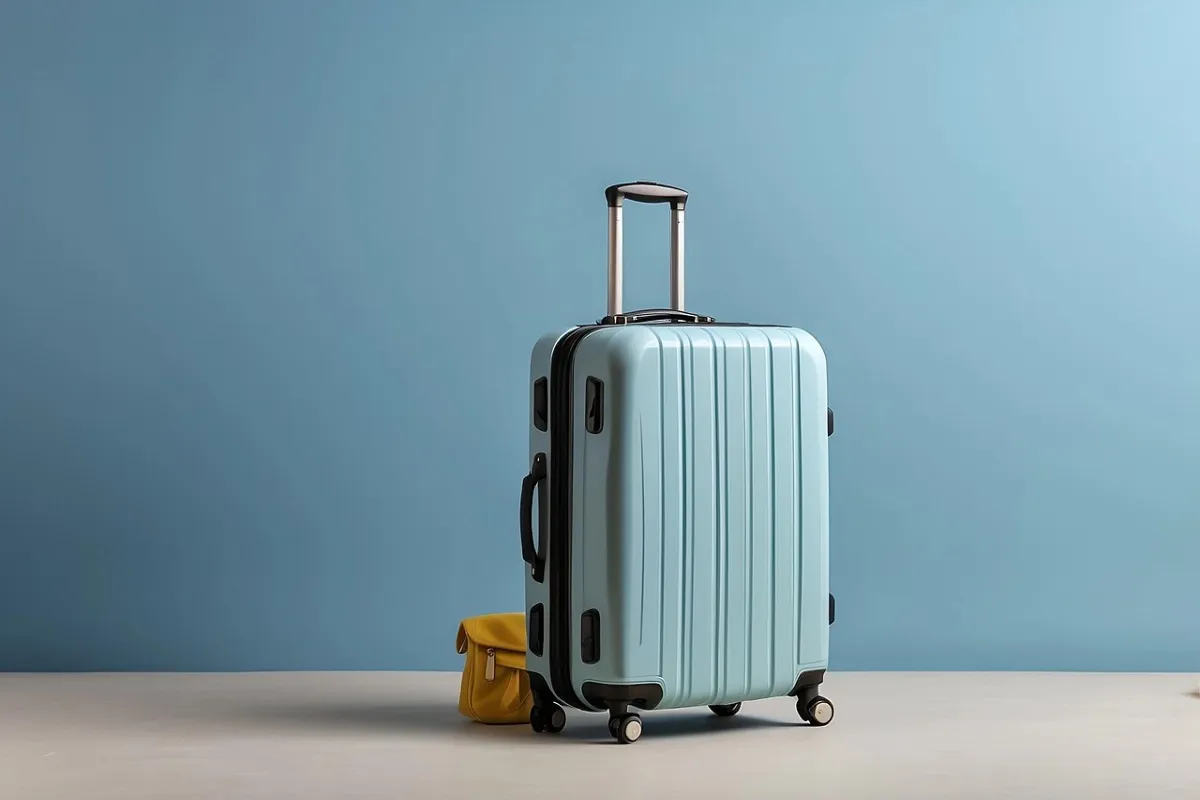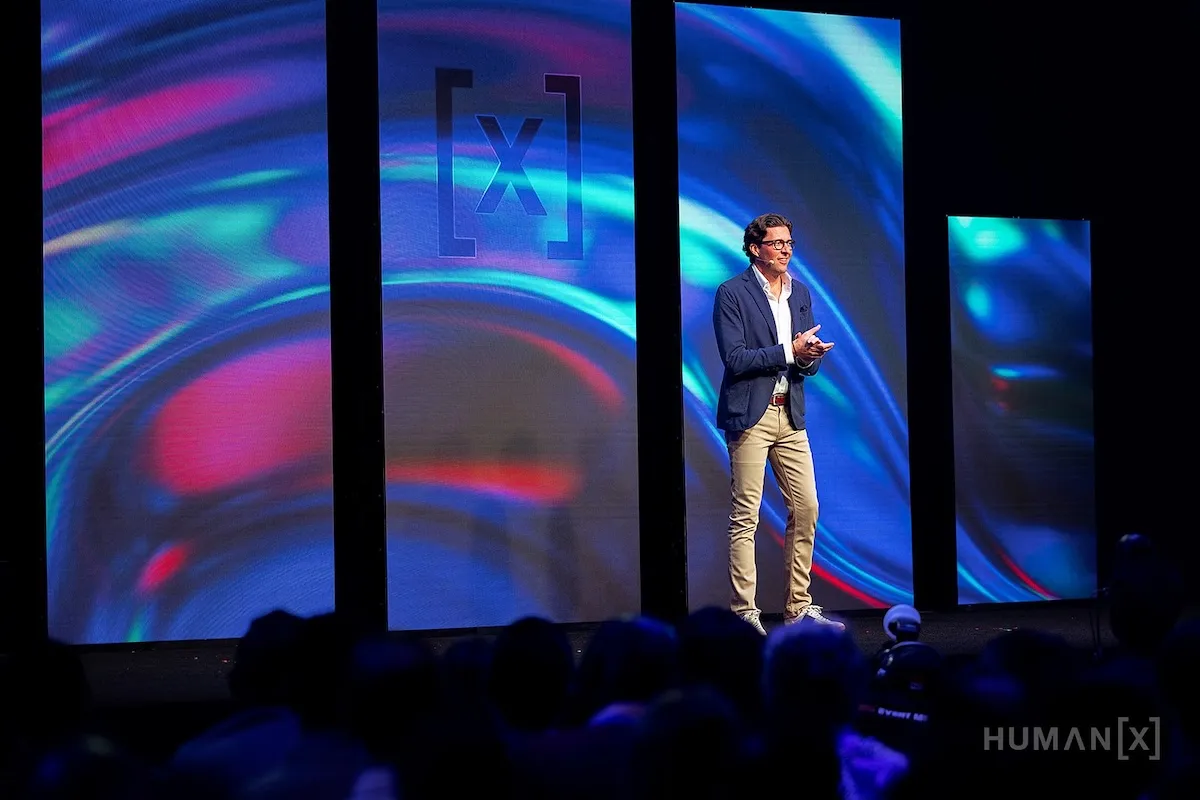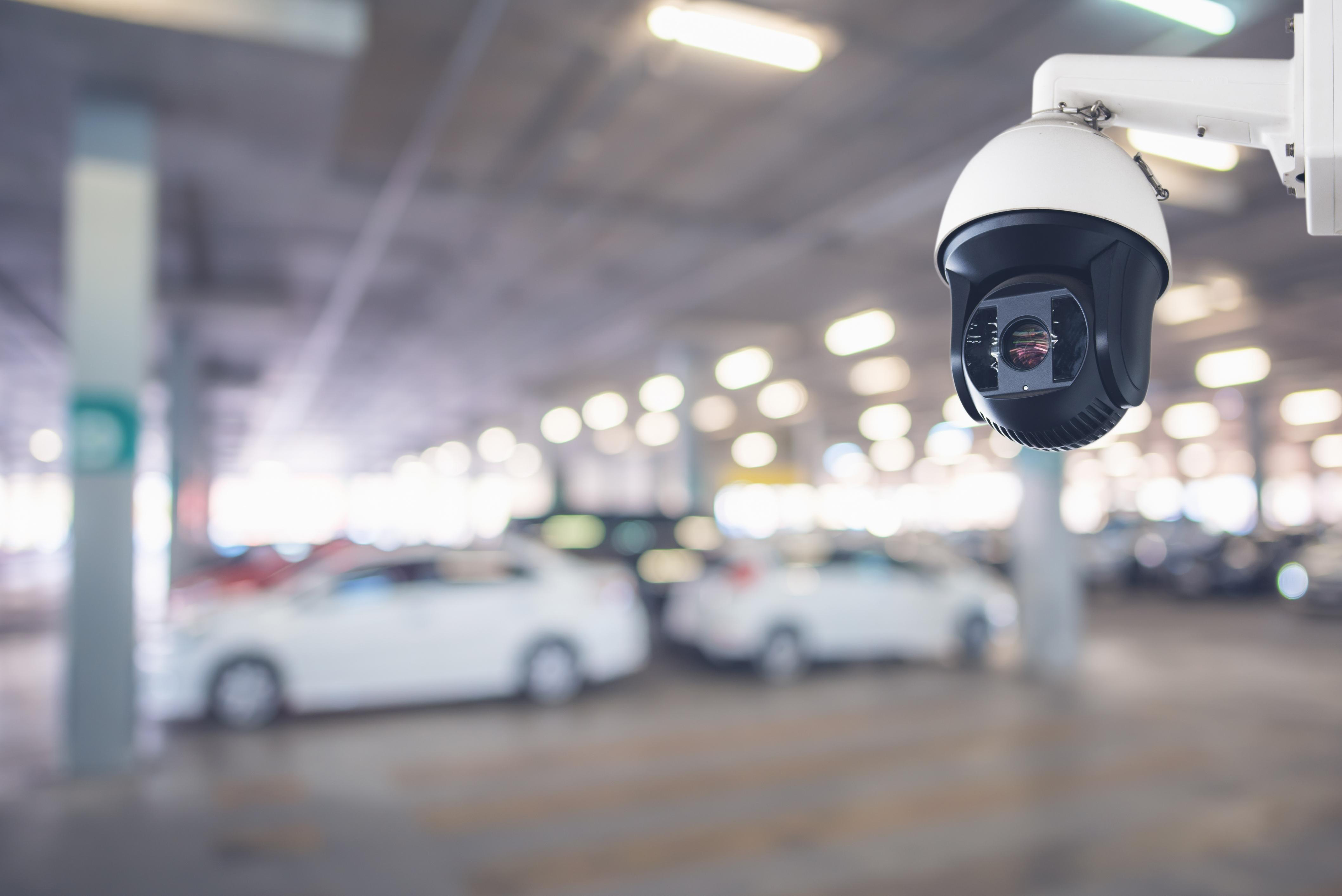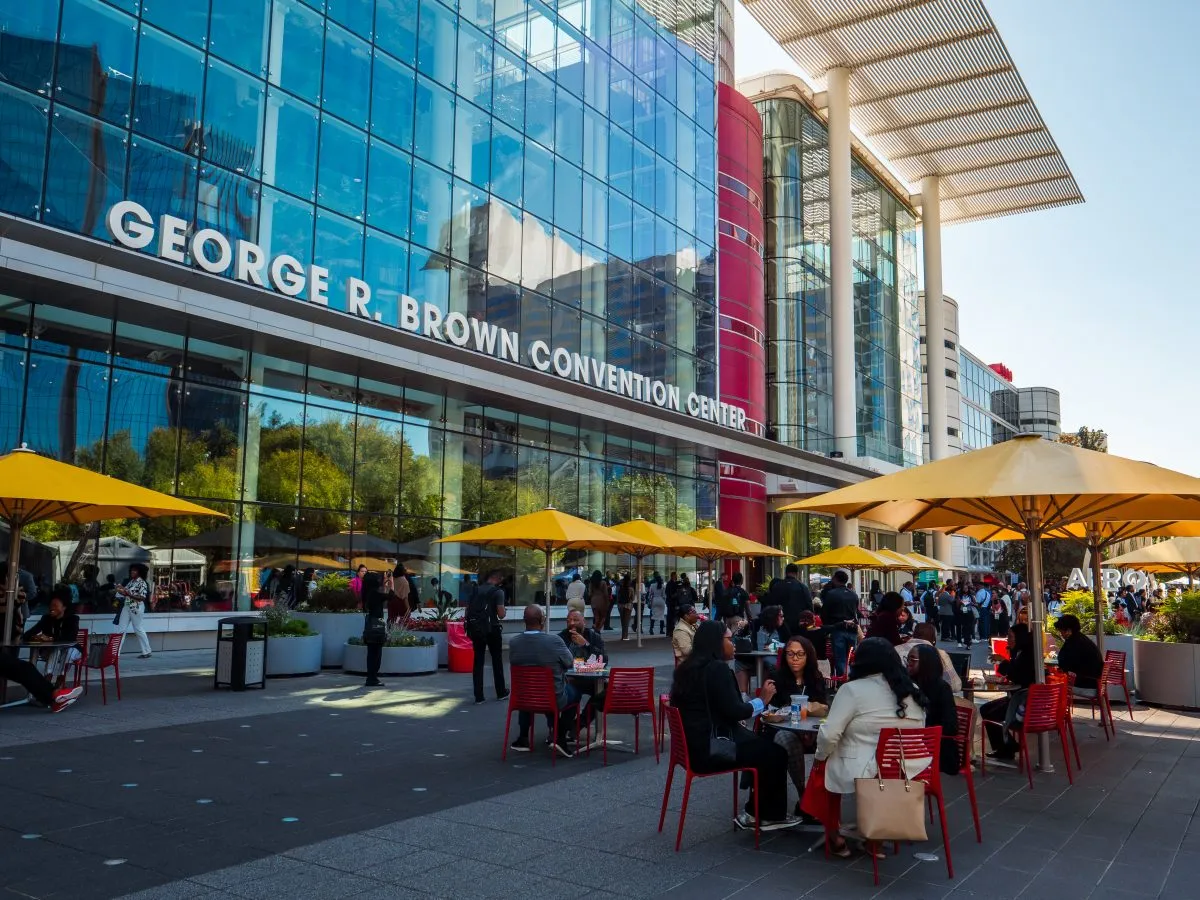The Human Way to Boost Event Networking
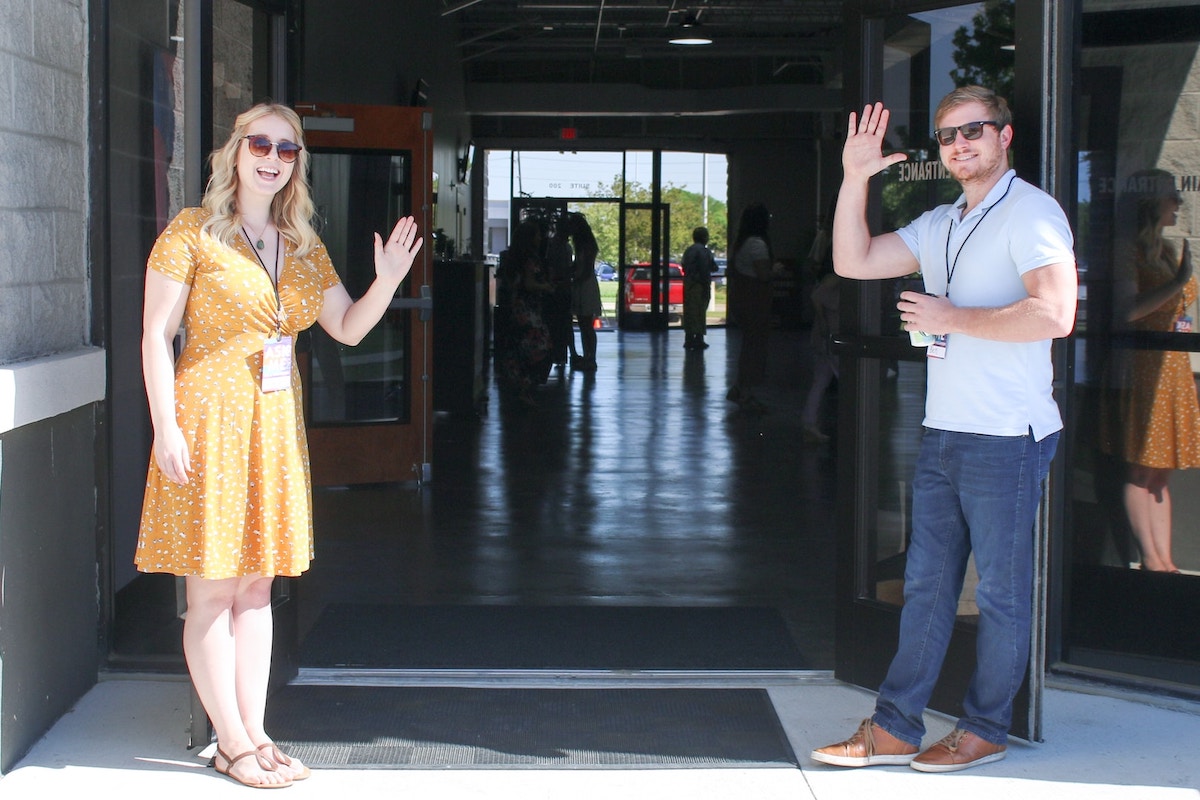
Skift Take
Networking ranks high among the key reasons people attend business events. While the simple act of gathering around a common business theme curates the community, there are no guarantees that attendees will meet the right people. Serendipitous meetings are magical, but what if there was a way to increase the chances of successful business networking significantly?
Phil Mershon believes at least part of the answer lies in having dedicated people as networking ambassadors. Mershon is the author of Unforgettable: The Art & Science of Creating Memorable Experiences and Director of Experience for Social Media Examiner. He has helped make Social Media Examiner's main event, Social Media Marketing World, into a tight-knit community.
One of the features of the event, held annually in San Diego since 2013, is an active team of networking ambassadors. The concept started with the help of a dedicated professional networker, Mike Ambassador Bruny, who led the team in the first year and trained others.
Since then, networking ambassadors have always been part of the team, now consisting of only volunteers trained by Mershon. At this year’s event in March, he had a team of seven helping just under 2,000 attendees connect in meaningful ways. “There's a culture that you're trying to create where people find each other accessible, open to conversation,” said Mershon.
What Is Involved in the Role of Networking Ambassador
It’s hard to pin down exactly what makes a good networking ambassador. “Their prime job is to start conversations and train others to do the same,” said Mershon. Part of it is just being yourself, but it helps when people are naturally good at connecting with people. “It's be yourself. but by being yourself, you're giving permission to others.”
The role is largely intuitive. Icebreakers help, but they are not enough. It requires lots of social awareness in reading situations. “Part of what ambassadors do is they start enough conversations and get people comfortable with each other, [and then] make the handoffs,” said Mershon.
Some people excel at making connections and can do so very efficiently. Expert networkers like Bruny can make around 200 connections in two and a half days. The average for volunteers is around 30. Somewhere in the middle is ideal. But this is not just a numbers game. Most connections are one-on-one, so it’s important to understand how you can help an individual quickly.
Sometimes, it’s just about knowing the event well and serving as a roaming helpdesk. Other times, the needs or requests are much more complex, like finding someone specific or who fits a certain profile among the crowd.
Following up is also really important. This may be at the event or afterward. The key here is remembering people and ensuring they feel cared for. “At the end of the day, to me it's getting people who love connecting with other people, empowering them to be themselves, giving them a few basic tools to do it well and then set them loose,” said Mershon.
The Impact of Networking Ambassadors
Mershon says he is always surprised about how networking ambassadors quickly impact events. “Everyone starts to realize, okay, this is a safe place. These are my people. They're looking out for me. And it doesn't take a long time for that to have an effect on the entire culture of the event,” he said.
Over the years, Mershon has fine-tuned his approach. He carefully selects the volunteers who he thinks will make great ambassadors. These are usually people who’ve been at the event before, but not always. However, they absolutely have to be self-guided and work well independently. “People with a good sniffer for connections will figure out where to go. You don't have to give them guidance. You just need to give them information on questions people might ask,” said Mershon.
He also has them wear special shirts on the first day to make them easy to spot and ask for help. For the rest of the event, they come dressed like other attendees and do their work incognito. The role shifts from roaming information point to undercover facilitator of human connections.
Needless to say, Mershon is happy with the results. “You make it possible by the culture you create, the questions that you ask, and the people that you have doing it. And then you kind of have to let the rest happen,” said Mershon
Phil is not against technology. In fact, he is trialing the use of AI to collect and organize data about attendees. He sees space for both technology and human-based solutions. Going forward, he is looking to invest in more training to keep improving the outcomes.
He’s also looking at other strategies for orchestrating gatherings of people. Table talks and meetups are part of the plan. “Ambassadors are good for the one-to-one and one-to-two, and small little things that happen throughout the event. But getting clusters of people together is a different thing”, said Mershon.

